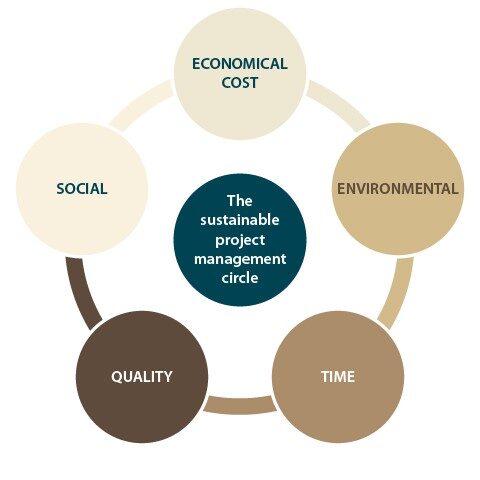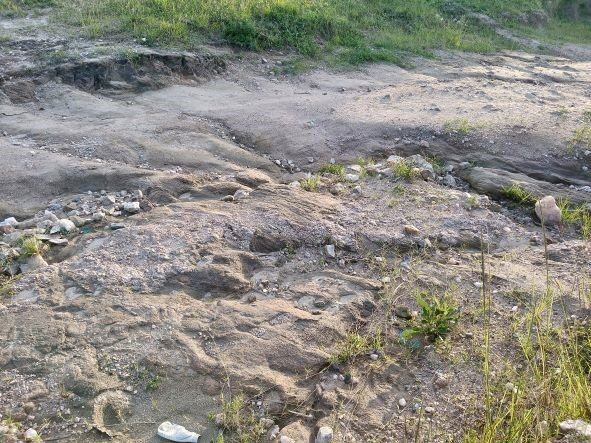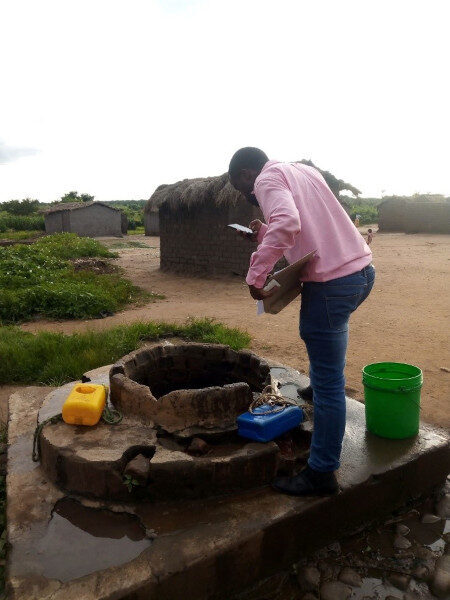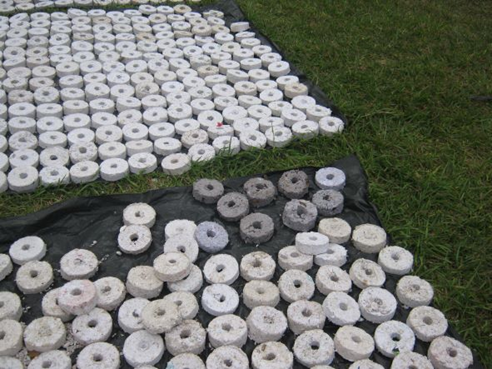Project Management Assignments
Naturenv Consult’s project management services include development of project proposals, business plans and strategic plans; fundraising support; baseline, mid-line and end-line studies; monitoring and evaluation; and research, training and capacity building. At the heart of our services is the integration of sustainability, that is the consideration of environmental, social and economic aspects of the project and delivery processes, and ensuring that project outputs and outcomes are sustained over a long time.

Figure 1: Sustainable Project Management Cycle
Below is a selection of project management related assignments which were successfully completed:
1. “Baseline Assessment for the landscape for the implementation of the Small Grants Programme in Malawi (Mzimba, Rumphi and Nkhatabay districts).” The project was implemented from December 2021 to May 2022. Naturenv Consult was engaged by Centre for Environmental Policy Advocacy (CEPA), a local NGO, which was developing a Country Programme Strategy for the Small Grants Programme 7th Operational Phase in Malawi for UNDP. Our approach to the study included stakeholder consultations and community surveys.

Figure 2: A degraded area identified in Mzimba during the study
2. In September 2022, we conducted a baseline study for “My City My Space: Strengthening Waste Management Systems for Improved Environment and Community Well-Being” project, implemented by CEPA. Information was gathered through stakeholder consultations, focus group discussions and key informant interviews.
3. In April 2020 we conducted an end of project evaluation of the “Malawi Sustainable Solution to Poverty” project. The project was implemented by Malawi Fair Trade Network with support from Shared Interest Foundation, a UK based charity organization. We assessed the project’s effectiveness in realization of results, relevance, efficiency in use of resources, impacts and sustainability.
4. From January to March 2020 we conducted a baseline study for the “Improving Educational Chances of Children in Lilongwe District through holistic WASH Interventions” project. The project was implemented by Habitat for Humanity in Malawi and it included construction of WASH facilities including latrines, boreholes, menstrual hygiene management facilities and handwashing facilities; training students in appropriate hygiene behaviors including Menstrual Hygiene Management; and engaging the school communities to take care of the facilities.

Figure 3: A WASH Expert evaluating a borehole
5. In June 2019 we conducted an assessment of knowledge levels of SRHR policies among women living with HIV and adolescent girls. The project was implemented by Foundation for Community and Capacity Development (FOCCAD) in Nkhotakota and Salima districts in Malawi. Project activities included interviewing women living with HIV and adolescent girls and document review.
6. In March 2019 we conducted a baseline survey to assess the efficacy and effectiveness of nutrition governance structures in Ntcheu and Nkhotakota districts. The baseline survey included preparation of an assessment framework, designing tools, data collection and analysis and preparation of the report. The findings were presented to the local authorities in the respective districts.
7. In 2017 we prepared a business plan for the distribution of solar lamps in Ndirande, Blantyre which won a grant from the D-Prize. The business was implemented by Impact Light Solar Trading, a subsidiary of Naturenv Consult.
8. In 2013 we participated in the end of project evaluation of the “Community Based Disaster Preparedness and Risk Reduction Project in Karonga District” project which was implemented by World Vision Malawi.
9. In 2012 we developed a business plan for the implementation of Chemusa Briquettes Project in Blantyre, and won a grant from the Renewable Energy Acceleration Programme (REAP), which was supported by the Scottish Government. The project involved recycling of paper to produce briquettes for use as cooking energy fuel to replace charcoal.

Figure 4: Paper briquettes
